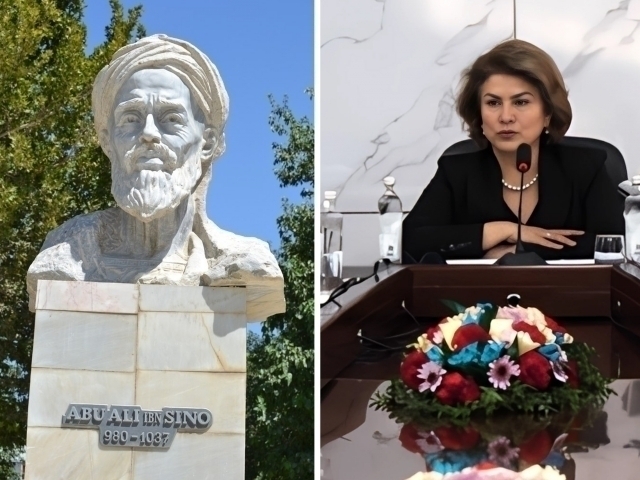Tajik Minister expresses her displeasure for calling Ibn Sina an Uzbek scholar (video)
World
−
27 January 2025 23145 2 minutes
Tajik Minister of Culture Matlubakhon Sattorian expressed her dissatisfaction regarding a recent CNN article that referred to the renowned scholar Abu Ali Ibn Sina as an Uzbek. She made these remarks during a press conference on January 27, in response to the article’s claims.
The minister argued that the accusations made in the CNN piece lacked historical accuracy and were based on misinterpretations that overlooked authoritative historical sources.
"This is not the official stance of a neighboring state, but rather unfounded assertions that may be incorrect," Sattorian stated.
She emphasized that such actions necessitate a firm response, particularly in the context of diplomatic protocol. Sattorian stressed that Abu Ali Ibn Sina is a monumental figure in science and culture, whose legacy transcends national boundaries and belongs to all of humanity.
“His scientific contributions and philosophical works are globally recognized and have played an essential role in both Tajik and world science for many centuries,” she added.
Sattorian expressed confidence that Tajik scholars, with their deep understanding of history and culture, will provide historically accurate responses to those attempting to claim ownership of the nation’s cultural and scientific heritage. He also urged international media to verify historical facts meticulously.
For context, Abu Ali Ibn Sina was born on June 18, 980, in the village of Afshana near Bukhara and passed away on August 16, 1037, in Hamadan, Iran. His birthplace is now part of the Peshku district in Bukhara region. Ibn Sina’s father, Abdullah, hailed from Balkh, present-day Afghanistan.
Live
All




